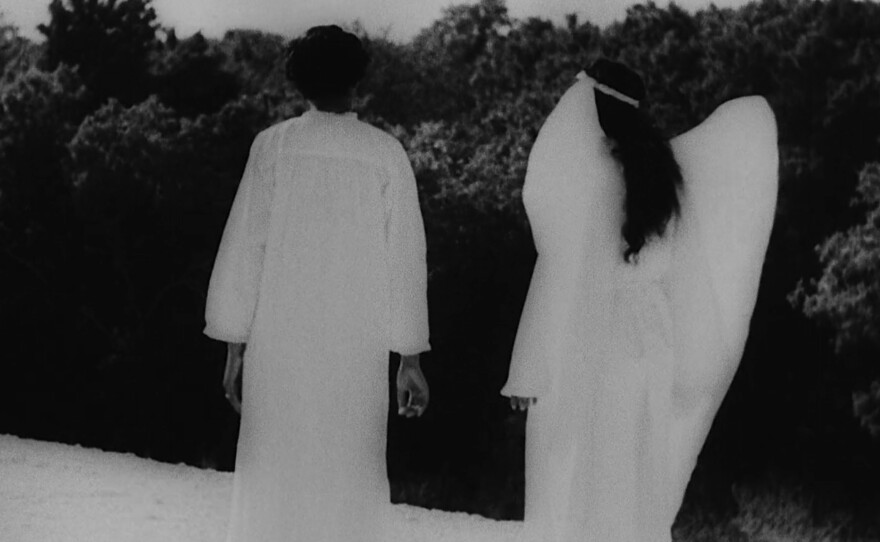The history of Black films in America is both problematic and inspiring. It's problematic in the racial stereotypes presented and how under-represented Black voices have been in the creative process. Yet, there have been amazing examples of Black filmmakers presenting their point of view and countering the white perspective over the past century. Cinema Junkie plans to highlight a century of Black cinema for the month of February.
During the summer, I highlighted a Black filmmaker a day and people responded well, so I decided that every day in February, I would highlight a film, in chronological order of release, to create a timeline of Black Film History.
I start this century of cinema in 1920 with Oscar Micheaux, who made silent films and early talkies. He is a true pioneer and many of his films have been lost. But a few have been saved in the Library of Congress and been restored and they are important to see to understand the roots of Black cinema. Micheaux started the first Black-owned film production company and made films with all-Black casts aimed for a black audience.
Spencer Williams’ pioneering work in early Black films may be overshadowed by the controversy over his racially stereotyped role as Andy on the 1950s TV show “The Amos 'n' Andy.” But hopefully, Williams will be remembered for the more interesting work he did before his TV fame. In 1941 he made “The Blood of Jesus,” which served up a religious tale that crossed into surreal territory complete with a devil and an angel fighting over a dying woman’s soul.
But finding Black filmmakers before 1960 has been a challenge. Many of the all-Black cast films made for segregated cinemas were, in fact, directed by white men. And some pioneering work in the early years of cinema by Black women has sadly been lost.
In a bit of cruel irony, the closure of segregated cinemas in the 1950s led to Black filmmakers losing whatever small control they had of Black images on the screen. Since films were being made for one mainstream theater audience, Hollywood and white directors took over making films that featured Black characters. Although there were some positively impactful films in the 1950s and '60s ("Intruder in the Dust," "One Potato, Two Potato," "Nothing But A Man," "A Raisin in the Sun") depicting Black characters and life, Black directors had no significant voice in American made movies.
Until the 1970s, when we get Blaxploitation.
First of all, not all Blaxploitation films are good, but there are many that are noteworthy for creating opportunities for Black filmmakers and actors. Gordon Parks, Sr. became the first African American to direct a major studio film with "Shaft" while Melvin Van Peebles made "Sweet Sweetback’s Badasssss Song" completely outside the studio system.
David F. Walker (who will be featured on this week's Cinema Junkie Podcast) is the author of the "Shaft" graphic novel and has a new one called "The Black Panther Party." He and I share a love for Blaxploitation films and he said this about their importance.
"There's two things I tell people they need to consider," Walker said. "One is that what Blaxploitation did is it signaled a shift in the way Blackness was presented, a fairly significant shift in the way it was presented in popular culture and that shift was reflective of power, fantasies and desires, and in a lot of ways, the unfulfilled dreams of the '60s. I think that if you look at those films and then you look at the decade that came before and the one that came after, you can see that progression. So that's first and foremost. But I think you can look at a film like 'Get Out' or Marvel's 'Black Panther' movie, and I'd argue that none of those films would exist today if it wasn't for Blaxploitation, because if nothing else, what the Blaxploitation era and the movement itself did was it opened the door and created opportunities and that door they could never shut that door again."
Walker added that we need to view films from the past with two lenses.
"I would say that if everybody doesn't have at least two pairs of glasses through which they view everything, they should have at least have a pair of bifocals with different lenses," Walker said. "You can look at everything through a contemporary lens, and that's fine. But you have to look through everything through a contextual lens of the time in the era in which it was made."
I think to appreciate where we are now, or why we haven’t progressed more, we need to look back to the past. We need to celebrate where these films made progress even if there are sometimes problematic aspects as well. But Blaxploitation had an undeniable cultural impact.
I hope you will follow along with my blog where I am keeping a complete list of the films and how to watch them.
You can also see my social media posts on my Cinema Junkie Facebook page, or by following Cinebeth on Twitter and Instagram.








